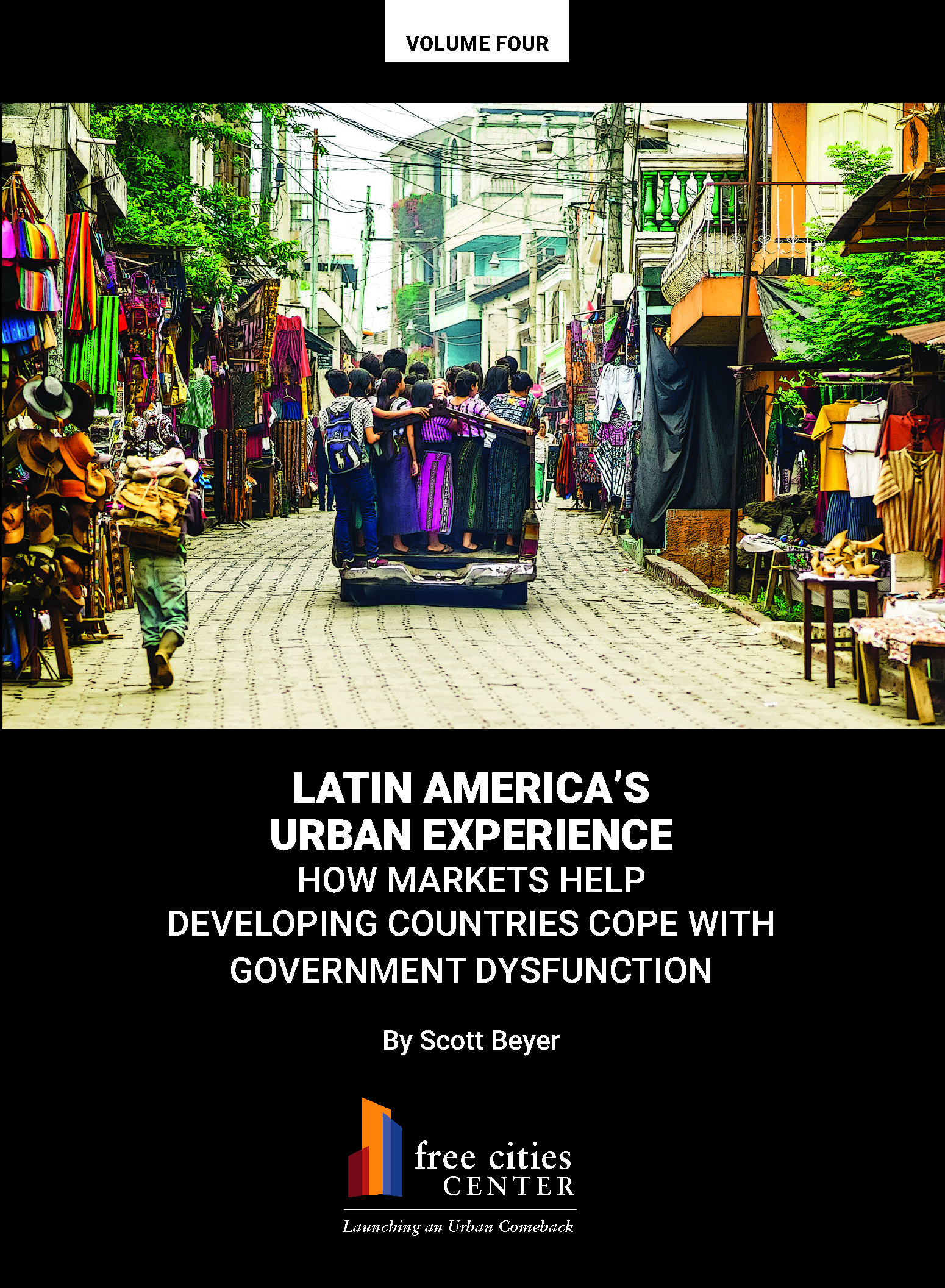SACRAMENTO – Despite its socialist political traditions, Latin America offers some free market lessons for the West Coast’s urban centers on housing, transportation, government services and startup cities, finds a new book released today by the Free Cities Center at the nonpartisan, free-market think tank, the Pacific Research Institute.
Click this link to download a copy of “Latin America’s Urban Experience.”
“For all its high-level socialism, Latin America is in many ways a place where it’s easier to own a home, start a business, or move as you choose,” said Scott Beyer, the author of “Latin America’s Urban Experience. “California shouldn’t copy everything about Latin America – especially the socialism that is built into its political history and fabric. But state policymakers would do well to learn from the best aspects of Latin America’s urban policy.”
The book builds upon the experiences of Beyer, the founder and editor of the Market Urbanist, traveling through Latin America exploring how market urbanism – or private-sector actions that create organic growth and voluntary exchange within cities – works in developing countries. It offers lessons from the cities visited on his trip that should be studied by urban centers in the U.S.
- Housing: Beyer contrasts the government-created home affordability and availability crisis in California with Latin America’s diverse housing models. He describes his visit to the Independencia neighborhood in Monterrey, Mexico, which featured every use of “mixed use” development imaginable and was hyper-dense with no vacant lots despite being low rise, and liberal labor laws in Honduras allowing developers to hire hordes of workers to finish projects quickly and at lower costs.
- Transportation: In contrast to California cities wracked with traffic gridlock and malfunctioning mass transit, Beyer shows how Latin American cities have flexible, largely market-driven transportation networks such as tuktuk taxis serving residents of Lima, Peru and Mexico City’s system of private buses called peseros.
- Startup Cities: The proposed Solano County startup city is generating NIMBY opposition and negative headlines. Beyer explores Latin America startups, such as the city of Prospera on Roatan Island in Honduras, which offers low taxes and regulations, liberal zoning laws, private education, medical freedom, and Bitcoin as legal tender.
“Scott Beyer draws upon his extensive Latin American travels to see if there are any lessons that Americans can learn,” said Steven Greenhut, director of PRI’s Free Cities Center. “He provides insight into how even the poorest residents of the some of the world’s poorest nations have improved their standing through their own ingenuity while dodging the obstacles their own government put in their way.”
PRI’s Free Cities Center cultivates innovative ideas to improve urban life based around freedom and property rights – not government. It regularly releases incisive reporting and analysis on crime, housing, education, homelessness, and social mobility. Follow PRI on Facebook, Twitter, and LinkedIn.

